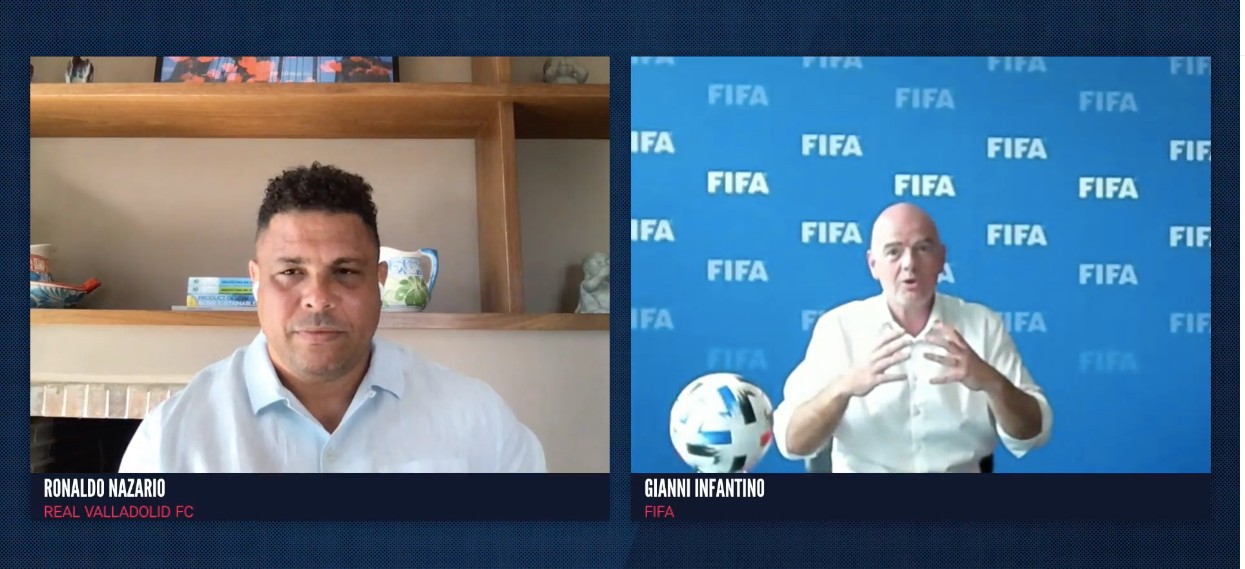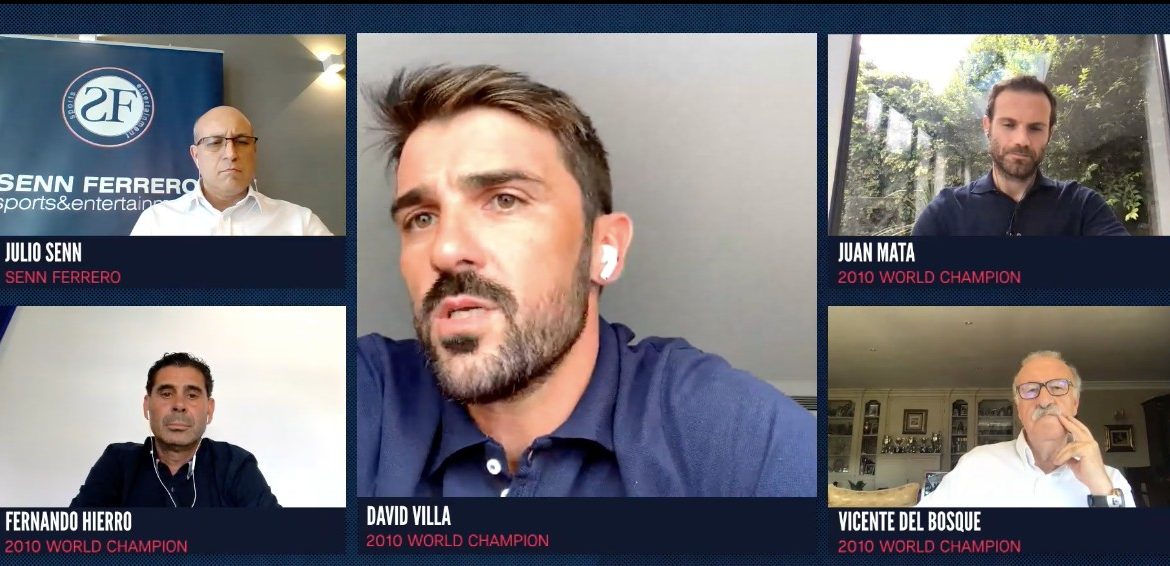Day 5 of WFS Live was packed with action and relevant discussions. African leaders such as CAF General Secretary Abdelmounaim Bah or football legend Didier Drogba discussed the best strategies for the game to continue growing in the continent, Pierluigi Collina, Chairman of FIFA’s Referee Committee, addressed how VAR is changing the game for the good, and FIFA President Gianni Infantino shared his plans for the future with Ronaldo Nazário in a unique live conversation. And as a special treat for our Spanish fans, we had Vicente del Bosque, Fernando Hierro, David Villa and Juan Mata sharing their memories on the 2010 World Cup, in which the Spanish National Team conquered the world with their unique “Tiki Taka” style.
Gianni Infantino on hosting the FIFA Women’s World Cup every two years
“One idea that came in this period, and even before as well, is that maybe we should organise the Women’s World Cup every two years instead of every four years. For the next Women’s World Cup in 2023, we had a lot of interest around the world. We’ll go to Australia and New Zealand. Then, what happens next? Should we go to South America? Or maybe Europe or North America want to organise it again? Why not South America? Why not Africa? So, we need to see what we can do.”
Ronaldo Nazário on fighting against racism every day
“The fight against racism is not just a fight for black people, it’s everybody’s fight. We have to fight it every day. Nobody is born racist, but somehow people learn to be racist. We have to fight to teach those who learn that when kids. But, it’s everybody’s fight.”
Santiago Solari on the mental challenges faced by players during the Covid-19 lockdown
“During the lockdown, players have had to rely heavily on self-discipline and self-motivation. They have worked for weeks without the control of any staff and without the motivation of the daily competition and also without their teammates. For the first time in their careers, they’ve experienced the harshness and the loneliness of the preparation for an individual sport, which is much more difficult.”
 David Villa on why Spain has to quit looking for the new Xavi and the next Iniesta
David Villa on why Spain has to quit looking for the new Xavi and the next Iniesta
“It would be a huge mistake to try to find the new Xavi, the new Iniesta, the new Villa or the new Casillas. Spain has great players and great coaches. They are different to the ones that won the World Cup in 2010, but they are perfectly capable of building an excellent team. If we want to succeed in the future, we have to stop comparing the current players with the past players. If we do so, Spanish football has an enormous potential.”
Didier Drogba on the need to educate football players in Africa
“Education is the key. We need to educate the players because, for example, in Ivory Coast some of them don’t know how to read, how to write. Education is vital, it is crucial because you can’t focus just on creating good football players. This is a career that lasts 10, 15 perhaps 20 years, but after that there is a life and the move can be very difficult.”
Karen Carney (Visa) on the importance of long-term partnerships in women’s football
“When I first started playing I don’t think there was any partners, there wasn’t really big sponsors. Nobody really cared if I’m honest. Then, as England started to get to major tournaments, you saw sponsors and partners drop in at key times, maybe a year before the tournaments and then they would drop out. There wasn’t really any consistency. And what I noticed since now is that for instance with Visa’s seven-year partnership, which is incredible, Nike, Barclays… This stops those peaks and troughs of coming in at the key moments and then dropping out. How can the women’s game ever really develop like that? Visa’s seven-year plan shows confidence in the game and it shows believe and that’s massive for other brands as well.”
Pierluigi Collina (FIFA) on how VAR is forcing referees to change their mentality
“Referees today grew up as referees without VAR, so this generation is in a process of big change. They have to adapt their mentality. To be clear, a referee on the field of play has been educated to defend the decision taken against everybody. Today he has to change this mentality because he has to understand and accept that his decision on the field can be overruled based on something that can be shown on the monitor. It’s a matter of mentality.”
